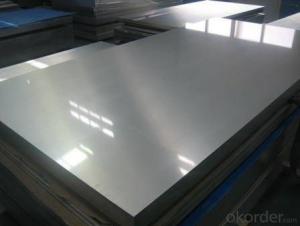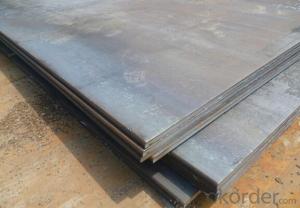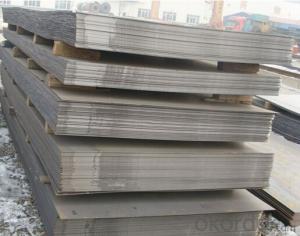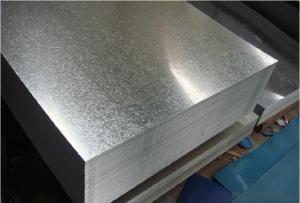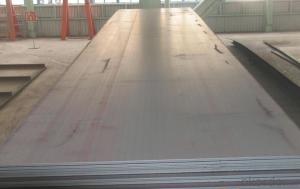Prime Hot Rolled Carbon Steel Plate_Sheet dimensions
- Loading Port:
- Tianjin
- Payment Terms:
- TT OR LC
- Min Order Qty:
- 3 m.t.
- Supply Capability:
- 10000 m.t./month
OKorder Service Pledge
OKorder Financial Service
You Might Also Like
Item specifice
Prime Hot Rolled Carbon Steel Plate_Sheet Dimensions
Thickness:0.6-200mm
Width:1000-4000mm
MOQ: 1 ton
Certificate:ISO,SGS
Specification of Hot Rolled Carbon Steel Plate_Sheet
Commodity | Prime hot rolled carbon steel plate / sheet dimensions |
Thickness | 0.6-200mm |
Width | 1000-4000mm |
Length | as custom's request |
Technique | Cold rolled or hot rolled mild steel plate |
Surface treatment | Bare, galvanized coated or as customer's requirements. |
Standard | ASTM,EN,GB,JIS |
Material | A283Gr.D/A573Gr.65,A516Gr65,A516Gr70,A284Gr.D SS400,SS300,CCSB A36,A32,LRA32,LRB,Q235 SAE1010,SAE1020,SAE1045,Q195,Q235,Q345,SS400,ASTM A36,E235B mild steel plate |
Usage | the mild steel plate will used in home appliances construction, machinery manufacturing, container manufacturing, shipbuilding, bridges, etc. |
Terms of Payment | 30% T/T as deposit and 70% T/T balance againest B/L copy. |
Delivery Detail | Within 3-15 days after receipt of deposited for the mild steel plate |
CNBM Introduction of the Hot Rolled Carbon Steel Plate_Sheet Supplier
CNBM International Corporation is the most import and export platform of CNBM group(China National Building Material Group Corporation) ,which is a state-owned enterprise, ranked in 270th of Fortune Global 500 in 2015.
With its advantages, CNBM International are mainly concentrate on Cement, Glass, Iron and Steel, Ceramics industries and devotes herself for supplying high quality series of refractories as well as technical consultancies and logistics solution.
After-sale service |
|
Advantages
|
|
Packaging & Delivery of the Hot Rolled Carbon Steel Plate_Sheet
Packaging Detail | Sea worthy packing /as per customer's packing instruction |
Delivery Detail | 15 ~ 40 days after receiving the deposit |
Products
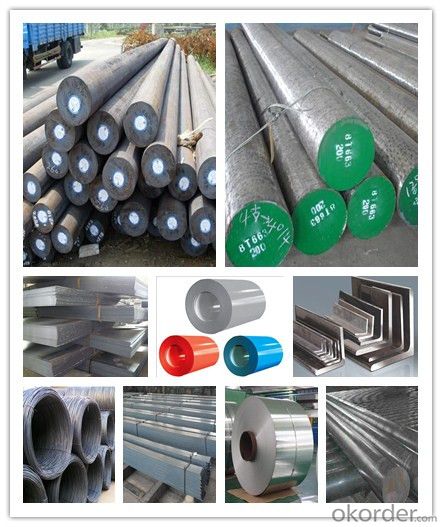
FAQ:
Are you a trading company or manufacturer? | Manufacturer |
What’s the MOQ? | 3 metric ton |
What’s your delivery time? | 15-35 days after downpayment received |
Do you Accept OEM service? | Yes |
what’s your delivery terms? | FOB/CFR/CIF |
What's the Payment Terms? | 30% as deposit,70% before shipment by T/T |
Western Union acceptable for small amount. | |
L/C acceptable for large amount. | |
Scrow ,Paybal,Alipay are also ok | |
Why choose us? | Chose happens because of quality, then price, We can give you both. Additionally, we can also offer professional products inquiry, products knowledge train (for agents), smooth goods delivery, excellent customer solution proposals. |
What's your available port of Shipment? | Main Port, China |
What’s your featured services? | Our service formula: good quality+ good price+ good service=customer's trust
|
Where are your Market? | Covering more than 160 countries in the world |
- Q:What are the different surface hardening grades of special steel?
- There are several different surface hardening grades of special steel, each designed to provide specific characteristics and properties. Some of the commonly used grades include: 1. Case-hardening steels: These grades are typically low carbon steels that are designed to develop a hard outer layer, or case, while maintaining a softer core. This is achieved through processes like carburizing or nitriding, which introduce carbon or nitrogen into the surface of the steel. Case-hardening steels are often used in applications where wear resistance and toughness are required. 2. Tool steels: These grades are specifically designed for use in cutting, forming, and shaping tools. Tool steels are known for their high hardness, resistance to wear, and ability to retain their cutting edge even at elevated temperatures. Various types of tool steels are available, such as high-speed steel (HSS), hot work steel, cold work steel, and plastic mold steel, each suitable for specific applications. 3. Stainless steels: These grades of special steel contain a minimum of 10.5% chromium, which provides excellent corrosion resistance. Stainless steels can be hardened through processes like precipitation hardening or martensitic transformation. They are commonly used in industries such as food processing, chemical, and medical, where resistance to corrosion and high temperatures are crucial. 4. High-strength steels: These grades are designed to provide exceptional strength and toughness. They often contain alloying elements like manganese, chromium, or nickel to enhance their mechanical properties. High-strength steels are commonly used in structural applications, automotive components, and heavy machinery. 5. Maraging steels: These grades of special steel are known for their high strength, toughness, and excellent resistance to fracture. Maraging steels achieve their properties through a unique aging process, which involves a precipitation-hardening treatment. They find applications in aerospace, defense, and tooling industries. 6. Bearing steels: These grades are specifically formulated to provide excellent wear resistance and durability for use in bearing applications. Bearing steels often contain alloying elements like chromium, molybdenum, and vanadium to enhance their mechanical properties and resistance to fatigue. These are just a few examples of the different surface hardening grades of special steel. Each grade offers unique properties and characteristics, allowing for a wide range of applications in various industries.
- Q:How does special steel perform in pharmaceutical applications?
- Due to its unique properties and characteristics, special steel is highly sought after in pharmaceutical applications. Its exceptional corrosion resistance is especially important in pharmaceutical environments where chemical substances and aggressive cleaning agents are commonly used. This corrosion resistance ensures the steel remains durable and maintains its integrity over time. Furthermore, special steel is renowned for its strength and durability, making it suitable for applications that involve heavy loads or frequent use. This strength allows the steel to withstand the demanding requirements of pharmaceutical processes, such as mixing, grinding, and sterilization, without compromising its structural integrity. Another significant advantage of special steel in pharmaceutical applications is its hygienic properties. It is highly resistant to bacterial growth and easy to clean, making it perfect for environments where cleanliness and sterility are of utmost importance. The smooth surface of special steel prevents the accumulation of dirt, bacteria, and other contaminants, reducing the risk of contamination and ensuring the safety and quality of pharmaceutical products. Moreover, special steel offers excellent temperature resistance, enabling it to endure extreme temperatures and thermal cycling commonly encountered in pharmaceutical processes. This thermal stability guarantees that the steel retains its mechanical properties and dimensional stability, even under fluctuating temperature conditions. Overall, special steel's corrosion resistance, high strength, hygienic properties, and temperature resistance make it a trustworthy and versatile material for pharmaceutical applications. Its exceptional performance in these challenging environments contributes to the production of safe and high-quality pharmaceutical products.
- Q:What are the challenges in machining special steel alloys?
- Special steel alloys pose several challenges when it comes to machining, primarily due to their unique properties and characteristics. The first major challenge is their high hardness, which is often enhanced through heat treatment to improve mechanical properties. As a result, traditional cutting tools wear out quickly or become dull, making it difficult to machine these alloys. Additionally, the high hardness increases the risk of tool breakage, leading to frequent tool changes and increased production downtime. Another challenge is the presence of abrasive elements in special steel alloys, such as chromium, tungsten, or vanadium. These elements can cause rapid tool wear and degradation, resulting in reduced cutting tool life and higher machining costs. Moreover, if not managed properly during the machining process, these abrasive elements can lead to poor surface finish and dimensional accuracy. Furthermore, special steel alloys have low thermal conductivity, making it challenging to dissipate the heat generated during machining. This can result in high temperatures at the cutting zone, causing thermal expansion and distortion of the workpiece. The heat also affects the cutting tool, reducing its efficiency and lifespan. Effective heat management is crucial to prevent workpiece deformation and maintain dimensional accuracy. Moreover, these steel alloys are prone to work hardening, meaning they become harder and more difficult to cut as the machining process progresses. Work hardening leads to increased cutting forces, tool wear, and reduced surface finish. To overcome this challenge, machining parameters such as cutting speed, feed rate, and depth of cut must be carefully optimized to avoid excessive work hardening. In conclusion, machining special steel alloys involves overcoming challenges such as high hardness, abrasive elements, low thermal conductivity, and work hardening. To address these challenges effectively, manufacturers need to use specialized cutting tools, efficient cooling and lubrication systems, optimize machining parameters, and carefully select machining strategies. By doing so, accurate and efficient machining of special steel alloys can be achieved.
- Q:How does special steel contribute to the marine aftermarket industry?
- Special steel plays a crucial role in the marine aftermarket industry by offering a wide range of benefits and applications. Firstly, special steel is known for its exceptional strength and durability, making it an ideal material for manufacturing marine components and parts. These components include propeller shafts, rudders, marine engine parts, and various structural elements. The marine environment is harsh and corrosive, with constant exposure to saltwater, waves, and extreme weather conditions. Special steel, such as stainless steel or corrosion-resistant alloys, is specifically designed to withstand these corrosive elements. It provides excellent resistance to rust, pitting, and other forms of corrosion, ensuring the longevity and reliability of marine equipment. Furthermore, special steel is often used in high-performance marine engines and turbines due to its excellent heat resistance and mechanical properties. It can withstand high temperatures and pressures, making it suitable for marine propulsion systems that require superior performance and efficiency. Additionally, special steel is employed in the construction of marine vessels, including ships, offshore platforms, and submarines. Its high strength-to-weight ratio allows for the construction of lightweight yet sturdy structures, leading to improved fuel efficiency and overall performance. Moreover, special steel's ability to withstand impact and fatigue loading makes it an essential material for ensuring the safety and structural integrity of marine vessels. Moreover, special steel contributes to the marine aftermarket industry through its versatility. It can be easily fabricated and customized to meet specific design requirements, allowing for the production of unique and tailored marine components. This flexibility enables the marine aftermarket industry to provide a wide range of replacement parts and upgrades for existing vessels, enhancing their performance, efficiency, and safety. In summary, special steel is a vital component in the marine aftermarket industry. Its strength, durability, corrosion resistance, and versatility make it an essential material for manufacturing marine components, constructing vessels, and improving overall performance. With its unique properties, special steel helps ensure the safety, reliability, and efficiency of marine equipment, contributing to the growth and success of the marine aftermarket industry.
- Q:How is special steel used in the production of bearings for high-speed applications?
- Due to its unique properties, special steel is widely utilized in the manufacturing of bearings for high-speed applications. These bearings play a critical role in facilitating efficient movement between surfaces and must withstand extreme forces and rotational speeds. To meet these demanding requirements, special steel is selected for its remarkable strength, durability, and resistance to wear. The composition of special steel enables it to maintain its structural integrity under heavy loads, preventing deformation and ensuring the longevity of the bearing. Moreover, special steel possesses exceptional hardness and toughness, making it resistant to wear and fatigue caused by repetitive high-speed rotations. This characteristic is particularly important in high-speed applications where continuous motion generates significant heat and friction, leading to premature wear and failure of the bearing. By utilizing special steel, these issues are minimized, guaranteeing reliable and efficient performance. Additionally, special steel exhibits superior heat resistance, which is crucial in high-speed applications where temperatures can escalate due to friction and high rotational speeds. The ability of special steel to withstand elevated temperatures without compromising its mechanical properties or deforming is vital for preventing premature bearing failure and ensuring long-term performance. In conclusion, special steel is an indispensable material in the production of bearings for high-speed applications. Its exceptional strength, durability, wear resistance, and heat resistance enable bearings to operate reliably and efficiently under extreme conditions, ensuring smooth movement and reducing the risk of premature failure.
- Q:What are the main characteristics of corrosion-resistant castings?
- The main characteristics of corrosion-resistant castings include the ability to withstand exposure to corrosive environments without degradation or rusting, high resistance to chemical attack, excellent durability, and long-lasting performance. These castings are typically made from materials such as stainless steel, nickel-based alloys, or other corrosion-resistant alloys, which provide enhanced resistance against oxidation, pitting, and crevice corrosion. Additionally, corrosion-resistant castings often possess good mechanical properties, including high strength and hardness, making them suitable for applications in industries such as marine, oil and gas, chemical processing, and wastewater treatment.
- Q:What are the different forming techniques for special steel?
- Some of the different forming techniques for special steel include forging, rolling, extrusion, and casting.
- Q:What are the applications of special steel in the oil and gas supply chain?
- Special steel has various applications in the oil and gas supply chain. It is commonly used in the construction of pipelines, drilling equipment, and offshore platforms. Special steel's high strength, corrosion resistance, and ability to withstand extreme temperatures make it ideal for these applications. Additionally, special steel is used in the manufacturing of valves, fittings, and other components that are crucial for the efficient and safe operation of the oil and gas supply chain.
- Q:What are the main advantages of using special steel in the defense industry?
- The main advantages of using special steel in the defense industry are its exceptional strength, durability, and resistance to wear and tear. Special steel alloys can withstand extreme conditions, such as high temperatures and pressures, making them ideal for military applications. Additionally, special steel offers enhanced corrosion resistance, ensuring the longevity of defense equipment even in harsh environments. Its high impact resistance and ability to absorb shock also make it valuable in protecting soldiers and military vehicles. Overall, special steel provides crucial advantages in terms of reliability, performance, and protection for the defense industry.
- Q:How does special steel contribute to reducing product waste during manufacturing?
- Special steel contributes to reducing product waste during manufacturing by offering superior strength, durability, and corrosion resistance. Its unique properties allow manufacturers to produce components that are longer-lasting and more resistant to wear and tear. This reduces the need for frequent replacements or repairs, ultimately minimizing product waste and increasing overall efficiency in the manufacturing process.
1. Manufacturer Overview |
|
|---|---|
| Location | |
| Year Established | |
| Annual Output Value | |
| Main Markets | |
| Company Certifications | |
2. Manufacturer Certificates |
|
|---|---|
| a) Certification Name | |
| Range | |
| Reference | |
| Validity Period | |
3. Manufacturer Capability |
|
|---|---|
| a)Trade Capacity | |
| Nearest Port | |
| Export Percentage | |
| No.of Employees in Trade Department | |
| Language Spoken: | |
| b)Factory Information | |
| Factory Size: | |
| No. of Production Lines | |
| Contract Manufacturing | |
| Product Price Range | |
Send your message to us
Prime Hot Rolled Carbon Steel Plate_Sheet dimensions
- Loading Port:
- Tianjin
- Payment Terms:
- TT OR LC
- Min Order Qty:
- 3 m.t.
- Supply Capability:
- 10000 m.t./month
OKorder Service Pledge
OKorder Financial Service
Similar products
New products
Hot products
Related keywords
